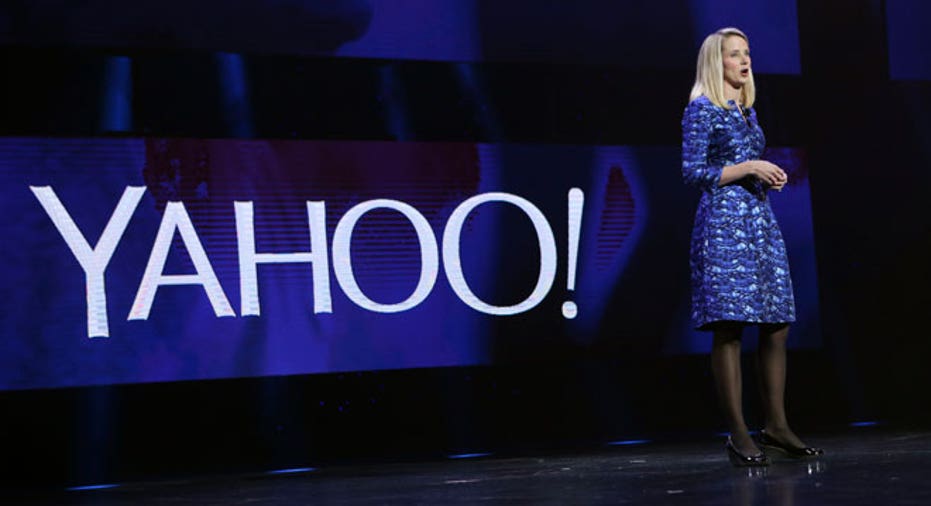Yahoo CEO Faces Morale Challenge

Marissa Mayer has repeatedly said reviving growth at Yahoo would take multiple years. But many insiders have lost patience, saying the embattled chief executive has no clear sense of direction and has misled investors and advertisers about the company's progress. In recent months, a crisis of morale has gripped Yahoo, as dozens of executives who had been instrumental to Ms. Mayer's turnaround plan have left for jobs elsewhere. Ms. Mayer called a meeting with senior executives in August and asked them to sign a written agreement to stay with the company for at least three more years, according to two people familiar with the meeting. Finance chief Ken Goldman was one of the first to pledge his commitment, but some executives left the room unsure they could make such a promise, one of the people said. In January, Ms. Mayer expects to complete the spinoff of shares in Alibaba Holding Group, putting the focus squarely on Yahoo's core business. Sales from that business continue to shrink, from $4.5 billion in 2012 when Ms. Mayer arrived to $4.4 billion last year and even less expected for 2015. Under Ms. Mayer, Yahoo's forays into mobile software, online video and search have cost the company hundreds of millions of dollars but yielded no meaningful growth in total users or revenue. Ms. Mayer said last month the company would adopt another strategy to "reset" the company's focus, without providing details. The CEO has hired management consultant McKinsey & Co. to look for areas of the company to cut, said a person familiar with the matter. The stagnation prompted activist investor Starboard Value LP last week to call on the company to halt its Alibaba spinoff and instead find a buyer for its core business. Yahoo has failed to get prior approval of its plan from the Internal Revenue Service, raising the risk that the agency could later challenge the spinoff's tax-free status. On an October earnings call Ms. Mayer said the company feels strongly the deal meets requirements for tax-free status. A Yahoo spokeswoman declined to make Ms. Mayer available for an interview. She pointed to earnings calls in which Ms. Mayer has defended the progress she has made in adding new lines of revenue from mobile ads and other areas. The company declined to comment further. When the Ms. Mayer is forced to deliver bad news, she employs what she calls a "jiu-jitsu move" -- trying to create a diversion by producing tantalizing information, according to people who have worked closely with her. For example, Ms. Mayer created an accounting metric called "Mavens" designed to spotlight the growing parts of Yahoo. The grouping includes revenue from mobile, video, native and social ads but excludes Yahoo's largest portion of revenue -- its shrinking business of display ads on desktop computers. Analysts say much of Mavens growth comes at the expense of Yahoo's desktop business, since many advertisers are shifting their ad spend from older formats that are more expensive and considered less effective. "The Mavens number was ridiculous because the vast majority of what they are generating was not new revenue," said Brian Wieser, an analyst at Pivotal Research LLC. When Yahoo announced its $1.1 billion acquisition of Tumblr Inc. in May 2013, Ms. Mayer said that adding the blogging site's 300 million users would put Yahoo over the 1 billion mark. That year, Ms. Mayer led an overhaul of the methodology it used to measure its audience across desktop computers and mobile devices, according to people involved in the project. The CEO weighed in on debates about different techniques, and she often leaned on the method that produced the larger number, said one of the people. In October 2014, more than a year after Ms. Mayer's prediction, Yahoo said it crossed 1 billion monthly users, more than half of whom were on mobile devices. That was also the first time Yahoo relied on a new methodology to track users, the people said. On a call with analysts, Ms. Mayer said Yahoo used a different metric but didn't disclose the methodology. As her strategy has shifted, Ms. Mayer has variously cast Yahoo as a challenger to Netflix Inc. in online video content and as a threat to Google Inc. in Web search, but has made little progress toward either goal. Yahoo spent more than $100 million over the past two years producing original video content, excluding the cost of employees, according to people familiar with the matter. Yahoo Screen, a portal for professional content from media partners such as Walt Disney Co.'s ABC and The Wall Street Journal as well as Yahoo-produced content, had 25 million unique video viewers, about the same number it had early 2014, according to comScore, whose data excludes mobile users. Yahoo wrote off a $42 million expense for the cost of online shows including "Community" in the third quarter. Yahoo's focus and investments appear to be shifting to search. An internal project called Yahoo Index aims to build a new search engine geared toward mobile phones, people familiar with the company have said. Yahoo relies on partners to generate search queries, sell ads and to capture users. Perhaps the most significant partner for Yahoo to secure in search, Apple Inc., appears to be elusive. Though Ms. Mayer has stated she is open to negotiating with the iPhone maker to become the default search provider for Apple's mobile Safari browser, no discussions have occurred, according to people familiar with the matter.



















